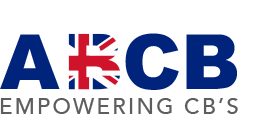Collaboration – the Future of Audits Post-COVID-19
During the COVID-19 Pandemic we saw a dramatic change in the way audits were delivered in order to maintain accreditation and certification and to keep supply chains operational, necessity required the significant adoption of remote auditing in many countries around the world. There is no doubt that speed with which the industry adapted was in large part due to the support and guidance provided by the IAF family, and the swift collaboration between its membership groups, Accreditation Bodies and Certification Bodies alike.
This rapid change has driven numerous innovations in remote auditing techniques, methodologies, and tools as well as a great deal of experience gained by the certification and accreditation community leading to fantastic advances and most of all lessons learned. Much of this was shared via the excellent IAF FAQ resource.
But post lockdown, what will the future of assessments look like? How will these learnings and benefits be utilised to improve their effectiveness and enhance the benefits of ISO standards to end users? Wayne Terry, Chief Executive of ABCB, thinks collaboration will shape the future as the quality infrastructure develop a collaborative approach to Blended Audits.
ABCB recently began discussions with UKAS to discuss the move back to “normality” as lockdown restrictions lift and in particular how the approach to remote auditing and the guidance around it will change to retain the benefits gained whilst at the same time maintaining the value and the integrity of accredited certification.
There is no doubt this is a very important topic facing all Accreditation Bodies and Certification Bodies, so with this in mind a joint task force was initiated by the UKAS Management System Certification Technical Advisory Committee involving other CB representative bodies and key stakeholders to develop an agreed approach to what will become the new normal.
Naturally, the approach will need to ensure that the integrity of the audit process is maintained in line with the current framework of IAF guidance and mandatory documents. Although previous restrictions on remote audits (such as the 30% limit contained in ISO 27006,) have currently been relaxed there will need to be a review to facilitate the adoption of a more risk-based approach that takes into account the way individual clients deploy and maintain their systems and industry specific factors.
Although the origins of the project will initially focus on the UK, once complete, it is intended to take the output for discussion at regional level through EA and then onto IAF thus bringing all the various elements of the IAF together through collaboration to shape the future of audits post COVID-19.
Given the extent of collaboration and speed of action by the industry during this crisis, I am very hopeful that we can have an agreed approach ready as each part of the globe exits this difficult situation.



